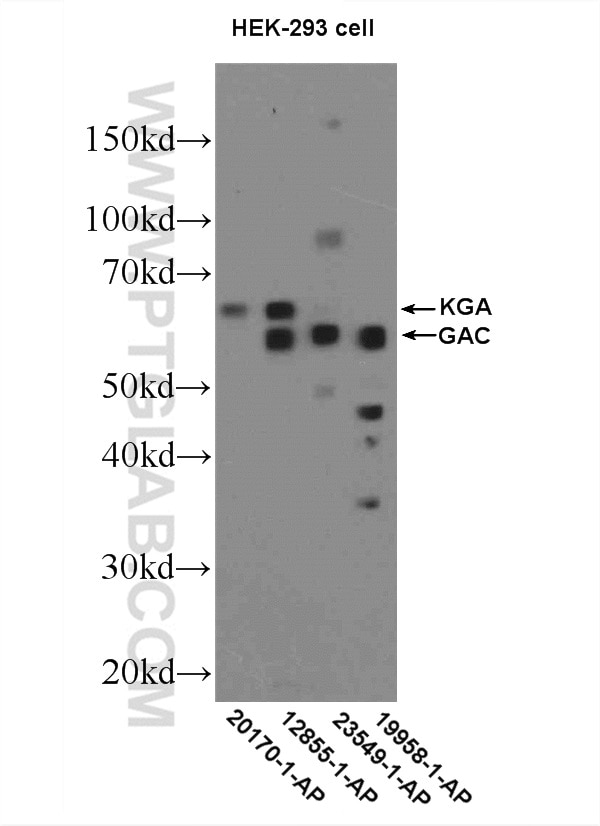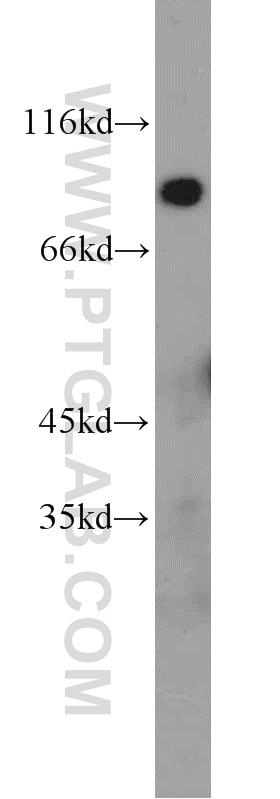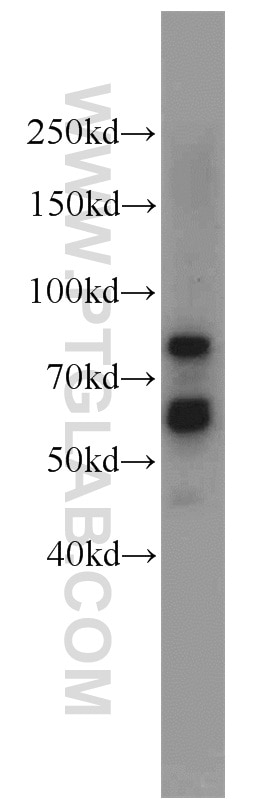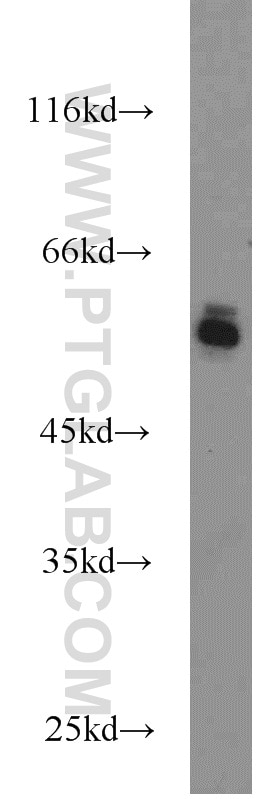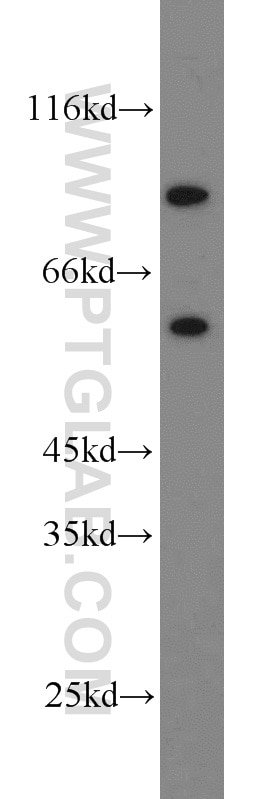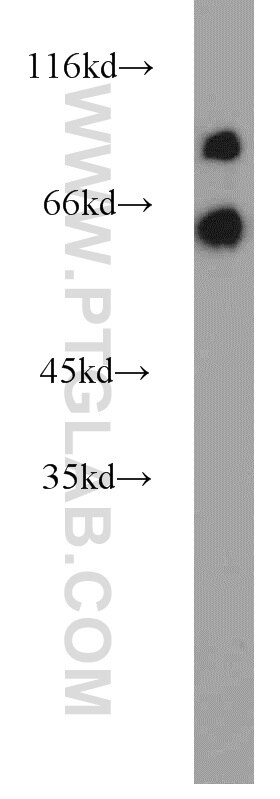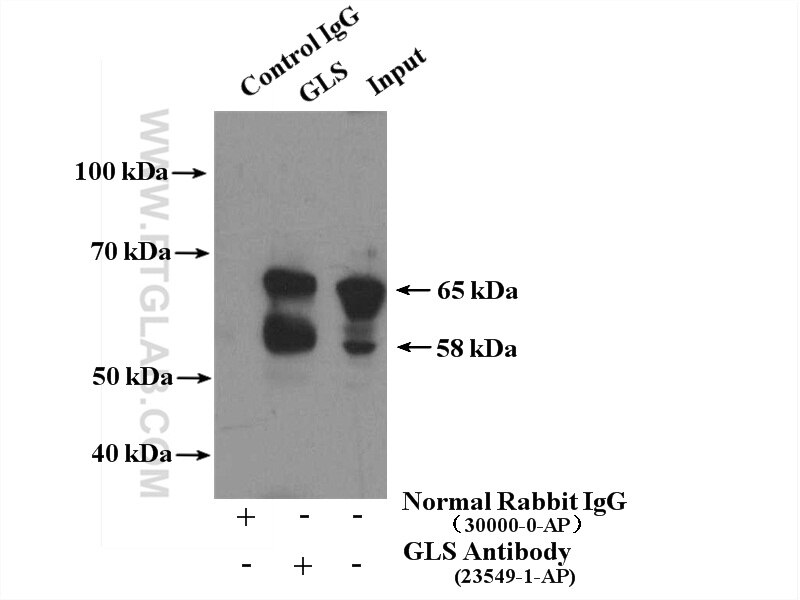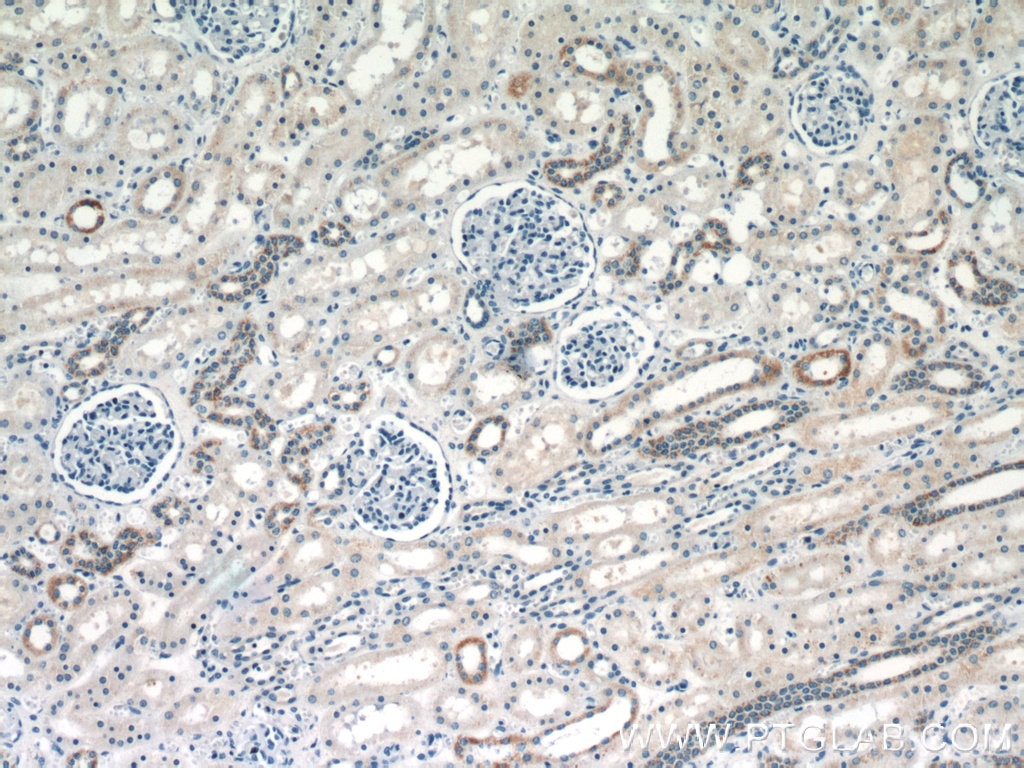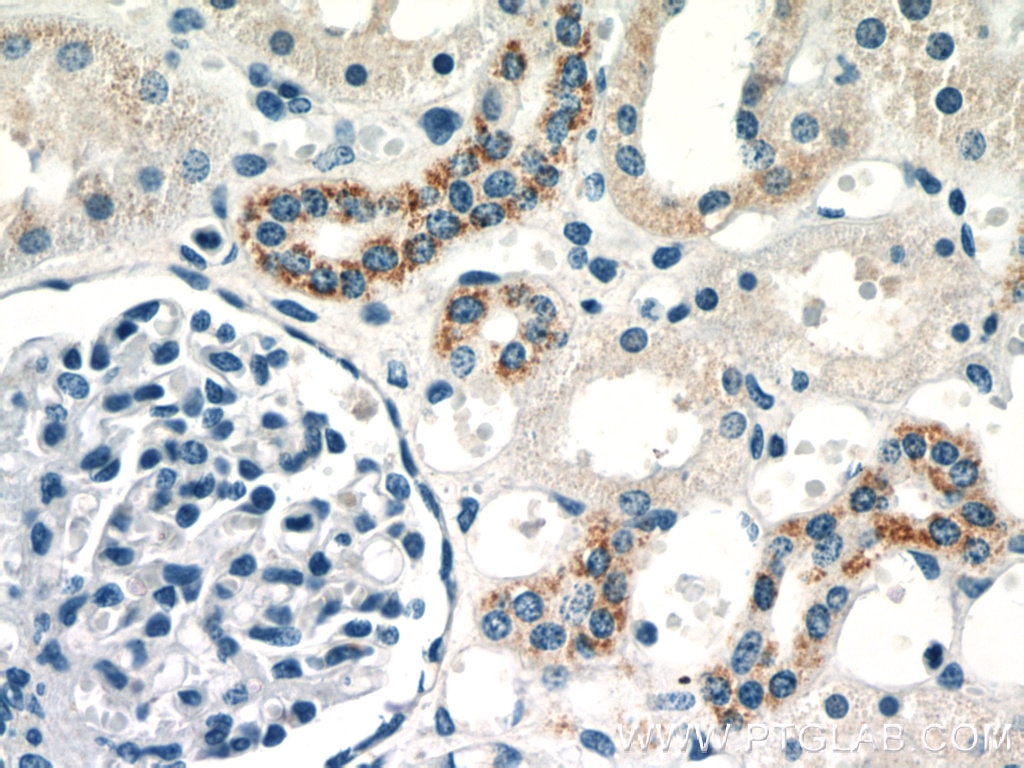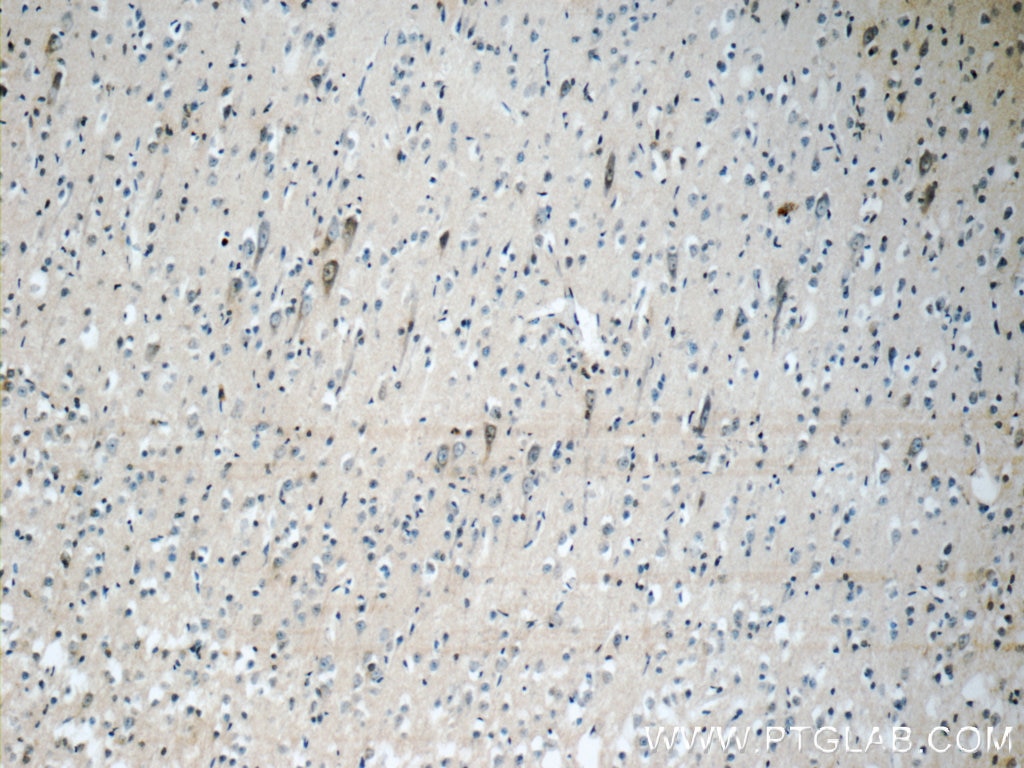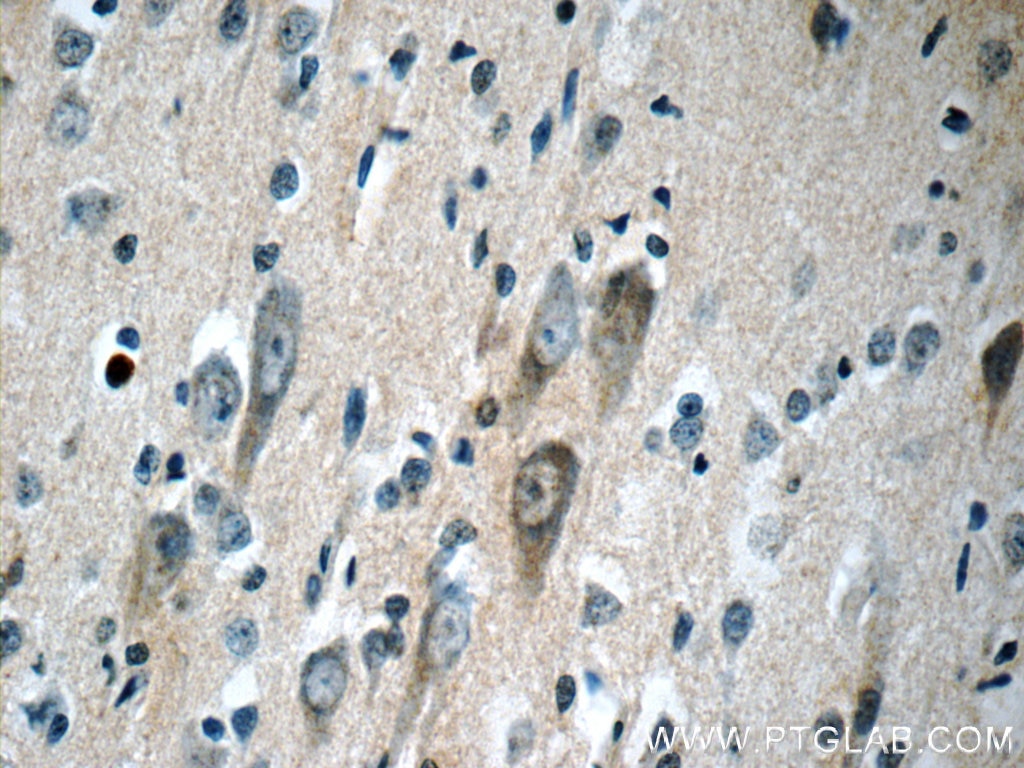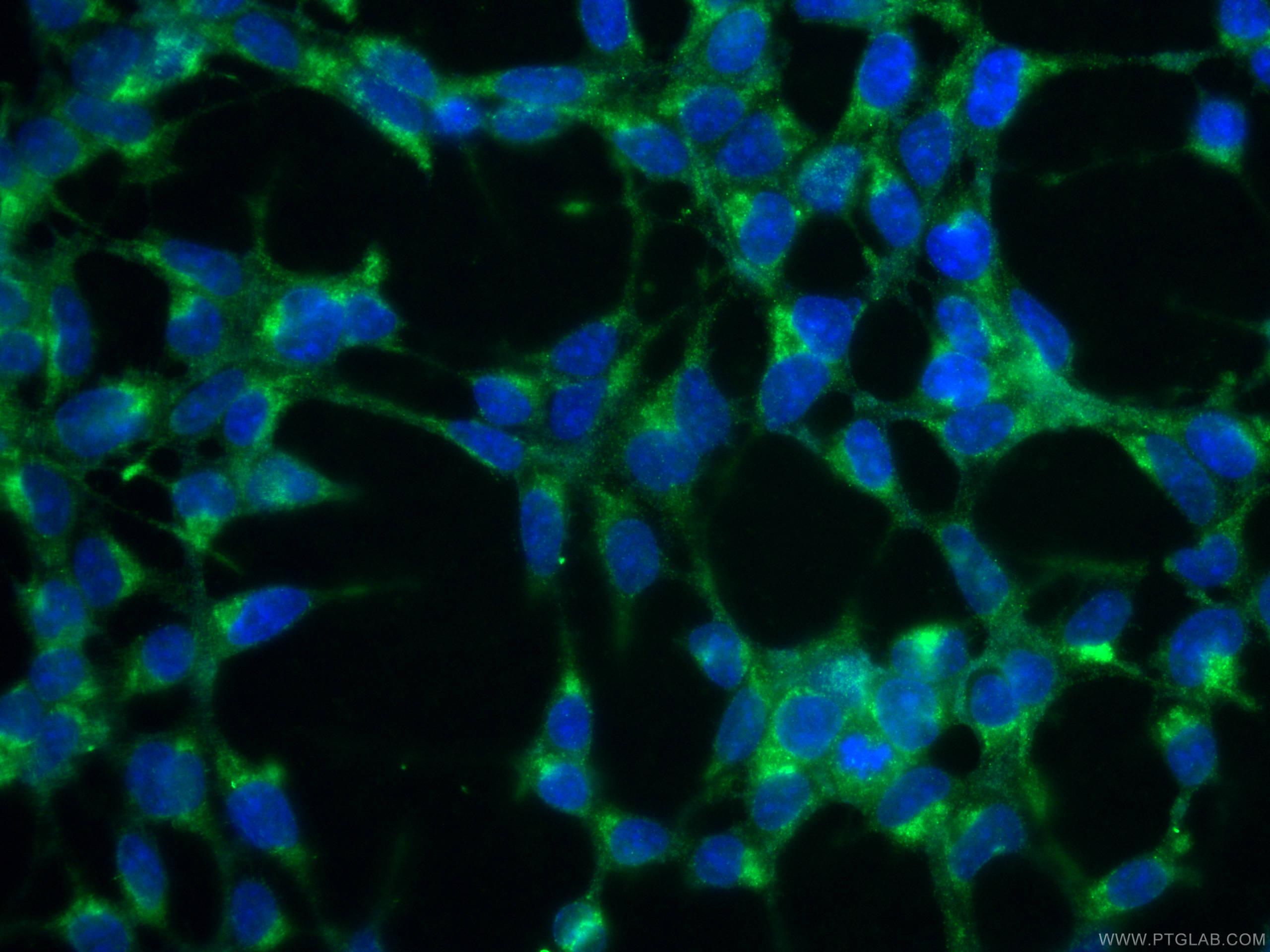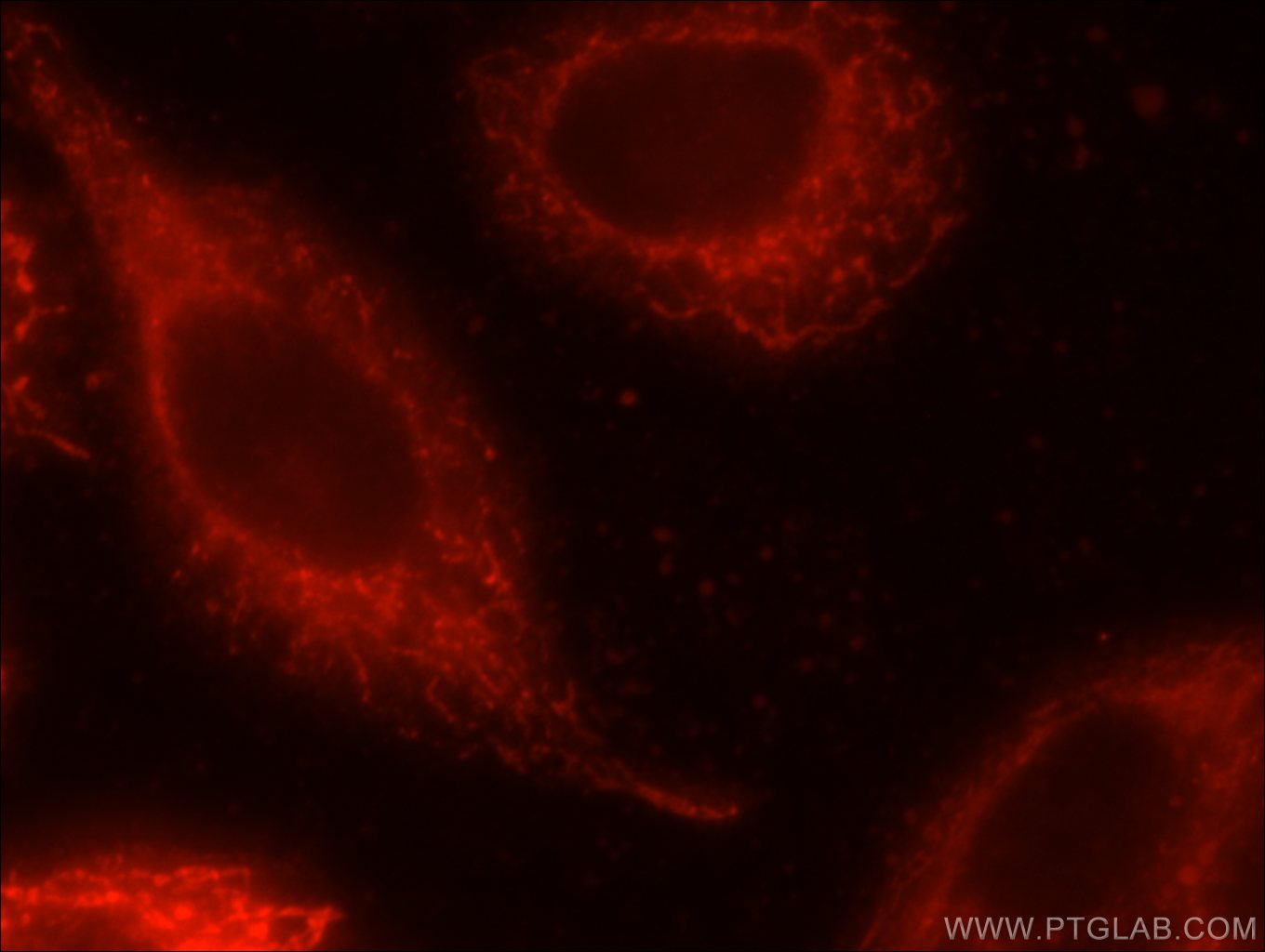Tested Applications
| Positive WB detected in | HEK-293 cells, HeLa cells, mouse brain tissue, mouse liver tissue, rat brain tissue |
| Positive IP detected in | HEK-293 cells |
| Positive IHC detected in | human kidney tissue, human brain tissue Note: suggested antigen retrieval with TE buffer pH 9.0; (*) Alternatively, antigen retrieval may be performed with citrate buffer pH 6.0 |
| Positive IF/ICC detected in | HEK-293 cells, HeLa cells |
Recommended dilution
| Application | Dilution |
|---|---|
| Western Blot (WB) | WB : 1:500-1:1000 |
| Immunoprecipitation (IP) | IP : 0.5-4.0 ug for 1.0-3.0 mg of total protein lysate |
| Immunohistochemistry (IHC) | IHC : 1:20-1:200 |
| Immunofluorescence (IF)/ICC | IF/ICC : 1:50-1:500 |
| It is recommended that this reagent should be titrated in each testing system to obtain optimal results. | |
| Sample-dependent, Check data in validation data gallery. | |
Published Applications
| KD/KO | See 1 publications below |
| WB | See 3 publications below |
| IHC | See 1 publications below |
| IF | See 2 publications below |
Product Information
23549-1-AP targets KGA/GAM/GAC in WB, IHC, IF/ICC, IP, ELISA applications and shows reactivity with human, mouse, rat samples.
| Tested Reactivity | human, mouse, rat |
| Cited Reactivity | human |
| Host / Isotype | Rabbit / IgG |
| Class | Polyclonal |
| Type | Antibody |
| Immunogen |
CatNo: Ag20354 Product name: Recombinant human GLS protein Source: e coli.-derived, PGEX-4T Tag: GST Domain: 1-140 aa of BC038507 Sequence: MMRLRGSGMLRDLLLRSPAGVSATLRRAQPLVTLCRRPRGGGRPAAGPAAAARLHPWWGGGGWPAEPLARGLSSSPSEILQELGKGSTHPQPGVSPPAAPAAPGPKDGPGETDAFGNSEGKELVASGENKIKQGLLPSLE Predict reactive species |
| Full Name | glutaminase |
| Calculated Molecular Weight | 669 aa, 73 kDa |
| Observed Molecular Weight | 58 kDa, 65 kDa, 83 kDa |
| GenBank Accession Number | BC038507 |
| Gene Symbol | GLS |
| Gene ID (NCBI) | 2744 |
| RRID | AB_2879295 |
| Conjugate | Unconjugated |
| Form | Liquid |
| Purification Method | Antigen affinity purification |
| UNIPROT ID | O94925 |
| Storage Buffer | PBS with 0.02% sodium azide and 50% glycerol, pH 7.3. |
| Storage Conditions | Store at -20°C. Stable for one year after shipment. Aliquoting is unnecessary for -20oC storage. 20ul sizes contain 0.1% BSA. |
Background Information
GLS, also named as GLS1 and KIAA0838, belongs to the glutaminase family. It catalyzes the first reaction in the primary pathway for the renal catabolism of glutamine. Glutaminase-, glutamate-, and taurine-immunoreactive neurons develop neurofibrillary tangles in Alzheimer's disease.The glutaminase band in AA/C1 cells is more intense than in HT29 cells, in accordance with measurements of glutaminase activity, and had the same molecular mass of approx. 63 kDa(PMID:12408749). Ping Gao et al. (2009) determined that mitochondrial glutaminase expression (GLS, molecular mass of ~58 kDa) is increased ~10-fold in response to Myc. It also reveals a molecular weight of 83-84 kDa as a phosphate-dependent glutaminase(PMID:447624;7512428). GLS has 3 isoforms produced by alternative splicing and this antibody can recognize all the 3 isoforms(KGA,GAM,GAC) of GLS.
Protocols
| Product Specific Protocols | |
|---|---|
| IF protocol for KGA/GAM/GAC antibody 23549-1-AP | Download protocol |
| IHC protocol for KGA/GAM/GAC antibody 23549-1-AP | Download protocol |
| IP protocol for KGA/GAM/GAC antibody 23549-1-AP | Download protocol |
| WB protocol for KGA/GAM/GAC antibody 23549-1-AP | Download protocol |
| Standard Protocols | |
|---|---|
| Click here to view our Standard Protocols |
Publications
| Species | Application | Title |
|---|---|---|
Mol Cell Filamentous GLS1 promotes ROS-induced apoptosis upon glutamine deprivation via insufficient asparagine synthesis.
| ||
Redox Biol Mitochondrial thiol modification by a targeted electrophile inhibits metabolism in breast adenocarcinoma cells by inhibiting enzyme activity and protein levels. | ||
Adv Sci (Weinh) Overcoming Cancer Persister Cells by Stabilizing the ATF4 Promoter G-quadruplex | ||
Biosci Rep Progesterone inhibits endometrial cancer growth by inhibiting glutamine metabolism through ASCT2 |

